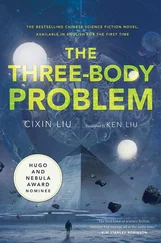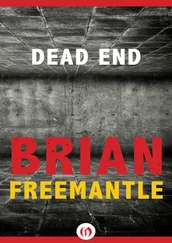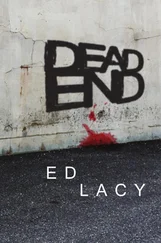At the beginning, the abuse was merely verbal, but it soon turned physical, and they began to snatch Cheng Xin’s rations away from her. AA did all she could to protect her friend. She fought the other women, sometimes several times a day. Once, she grabbed the meanest one by the hair and slammed her head against a bedpost until blood covered her face. Thereafter, they left her and Cheng Xin alone.
But the enmity directed at Cheng Xin wasn’t limited to their roommates: The migrants in the shelter-houses nearby also came to harass her. Sometimes they threw stones at Cheng Xin’s shelter-house; sometimes a mob surrounded the shelter-house and shouted curses at her.
Cheng Xin bore all the abuse with equanimity. Indeed, the abuse even comforted her. As the failed Swordholder, she felt she deserved worse.
This persisted until an old man named Fraisse came and invited her and AA to move into his place. Fraisse was an Aboriginal man, over eighty years of age but still hale and hearty, with a white beard on his black face. As a native, he had been temporarily allowed to keep his own house. During the Common Era, he had been in charge of an organization for Aboriginal cultural preservation, and he had gone into hibernation at the beginning of the Crisis Era in order to continue his task in the future. When he awoke, he saw that his prediction had come true: The Australian Aboriginals and their culture were close to disappearing.
Fraisse’s house, built back in the twenty-first century, was old but solid and had a nice copse of trees nearby. Once they moved there, Cheng Xin and AA’s lives became much more stable. More importantly, the old man provided them with spiritual tranquility. He did not share the popular searing anger and bone-deep hatred toward the Trisolarans; indeed, he rarely talked about the crisis at all. All he said was, “Whatever people do, the gods remember.”
True. Even people still remembered whatever people did. Five centuries ago, civilized men of Earth—most of whom had actually been criminals in Europe—stepped onto this continent and shot the Aboriginal peoples in the woods for sport. Later, even when they recognized that their quarries were men and women, not beasts, the slaughter continued. The Aboriginal peoples had lived in this vast land for tens of thousands of years. By the time the white men arrived, the native population was more than a half million, but that number soon diminished to thirty thousand refugees who had to escape to the desolate western deserts to survive….
When Sophon proclaimed the establishment of “reservations,” people paid attention. It brought to mind the tragic fate of the native peoples of North America, another faraway continent where the arrival of civilized men of Earth brought sorrow.
When she first arrived at Fraisse’s, AA was curious about everything in the old house. It resembled a museum of Aboriginal culture. Everywhere there were rock and bark paintings, musical instruments made of wooden slats and hollow logs, woven grass skirts, boomerangs, spears, and other such objects. AA was most interested in a few pots of paint made of white clay and red and yellow ocher. She knew right away what they were for, and, dipping a finger into the pots, started to paint her own face. Then she began dancing in imitation of tribal dancers she had seen somewhere, making fearsome noises as she danced.
“This would have terrified those bitches living with us,” she said.
Fraisse laughed and shook his head. He explained that AA wasn’t imitating the Aboriginal peoples of Australia, but the Māori of New Zealand. Outsiders sometimes confused the two, but the Aboriginal peoples of Australia were gentle, while the Māori were fierce warriors. And, even so, she wasn’t imitating the Māori dance correctly, and had failed to capture their spirit. Fraisse then painted his own face into an impressive mask and took off his shirt, revealing a dark chest and powerful muscles that seemed incongruous with his advanced age. He picked up a taiaha from the corner of the house and began to dance a real war haka.
Cheng Xin and AA were mesmerized. Fraisse’s kind everyday demeanor disappeared, and he transformed into a threatening, awe-inspiring demon. His whole body seemed suffused with magnificent force. Every cry and foot stomp made the glass window panes quake in their frames, and the two women trembled. But it was his eyes that shocked them the most: Murderous chill and searing rage spewed from those wide-open orbs, combining the forces of typhoons and thunder in Oceania. His powerful gaze seemed to project earth-shattering shouts: “Do not run away! I will kill you! I will eat you!”
The haka over, Fraisse went back to his usual kind self. “For a Māori warrior, the key is to hold the enemy’s gaze. He must defeat the enemy first with his eyes, then kill him with the taiaha.” He came back and stood in front of Cheng Xin. “Child, you failed to hold the enemy’s gaze.” Then he patted her gently on the shoulder. “But, it’s not your fault. Really not your fault.”
—————
The next day, Cheng Xin did something that surprised even herself: She went to see Wade.
Wade was sealing up the windows of a shelter-house with composite boards so that it could be used as a warehouse. One of his sleeves was empty. In this age, it would have been easy for him to acquire a prosthesis indistinguishable from the real thing, but for some reason, he had refused.
Two other prisoners—clearly also Common Era men—whistled at Cheng Xin. But once they realized who Cheng Xin had come to see, they shut up and went back to their work without looking up.
As Cheng Xin approached Wade, she was a bit surprised to see that while he was serving his sentence in harsh conditions, he looked much better groomed than the last time they met. He was clean-shaven and his hair was combed neatly. Prisoners in this age no longer wore uniforms, but his white shirt was the cleanest here, even more so than the shirts worn by the guards. Holding a few nails between his lips, he took them out one at a time with his left hand and pounded them into the composite boards with precise, forceful blows from the hammer. He glanced at Cheng Xin without changing his indifferent expression and went on working.
Cheng Xin knew right away that he had not given up. His ambitions, ideals, treachery, and whatever else was hidden in his heart, unknown to her—he had given up none of it.
Cheng Xin extended a hand to Wade. He glanced at her again, put down the hammer, spat out the nails, and deposited them in her hand. Then she handed him the nails one by one as he pounded them in, until they were all gone.
“Leave,” he said. He grabbed another handful of nails from the tool chest. He didn’t hand them over to Cheng Xin and didn’t put them in his mouth. Instead, he placed them on the ground next to his feet.
“I… I just…” Cheng Xin didn’t know what to say.
“I’m telling you to leave Australia.” Wade’s lips barely moved as he whispered. His gaze remained on the composite board. Anyone a little distance away would think he was concentrating on his work. “Hurry, before the resettlement is complete.”
Like he had many times three centuries ago, Wade had managed to stun Cheng Xin with a single sentence. Each time it was as if he had tossed her a knotted ball of string that she must untangle layer by layer before she could understand the complex meaning hidden within. But this time, Wade’s words made her shiver. She didn’t even have the courage to begin to untangle his riddle.
“Go.” Wade didn’t give her a chance to ask questions. Then he turned to her and once again revealed his special smirk, like a crack in a frozen-over pond. “ Now I’m telling you to get out of this house.”
Читать дальше












